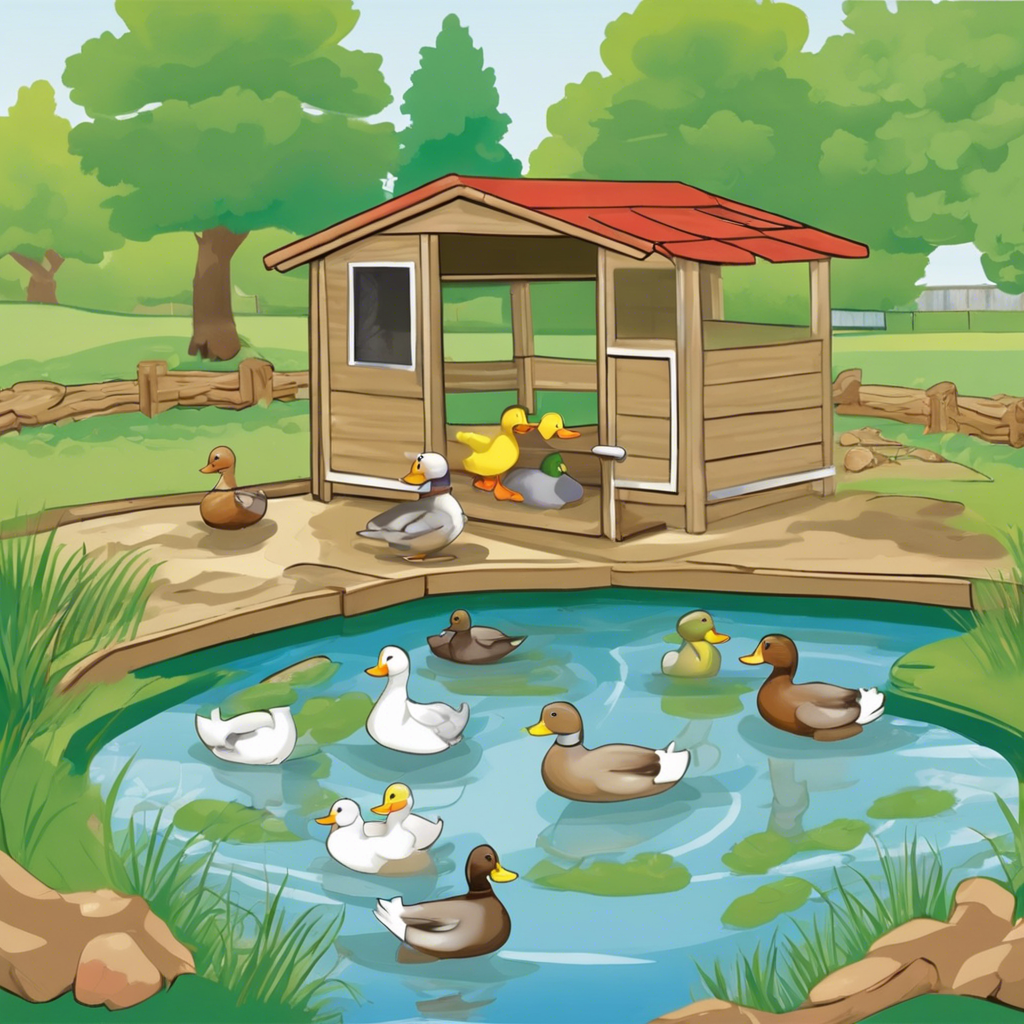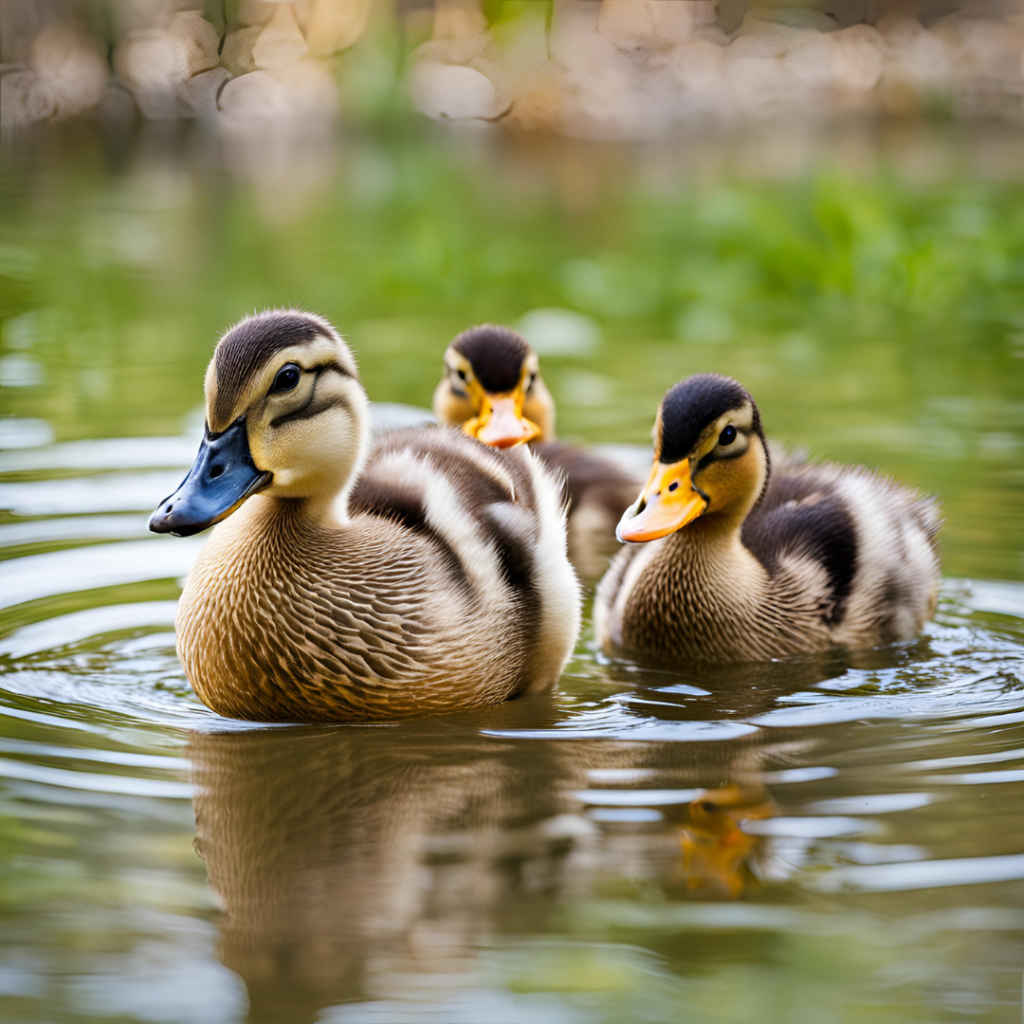When it comes to caring for domesticated ducks, many people envision a serene pond filled with charming quacks and vibrant feathers. However, the responsibility of duck ownership extends far beyond this idyllic image. Ducks require specialized care, attention, and understanding to thrive in both urban and rural environments.
In this comprehensive guide, we’ll explore everything you need to know to take care of ducks—from their dietary needs and housing requirements to health concerns and breeding practices. By following these guidelines, you can ensure that your ducks lead healthy, fulfilling lives and bring joy to your home.

Understanding Duck Breeds
Before you start caring for ducks, it’s essential to understand the different breeds available. Ducks can vary significantly in size, temperament, and requirements. Some popular domestic breeds include:
- Pekin Ducks: Known for their friendly nature and rapid growth, Pekins are often raised for meat production.
- Khaki Campbell Ducks: Renowned for their high egg production, these ducks are active and hardy.
- Indian Runner Ducks: Characterized by their upright posture, Indian Runners are excellent foragers and are known for their playful behaviors.
- Muscovy Ducks: These ducks are unique in that they do not quack like typical ducks; instead, they produce a variety of sounds. They are also excellent at pest control.
Choosing the right breed for your lifestyle and purpose will set the foundation for successful duck care.
Housing Requirements
Giving your ducks a safe and comfortable home is critical. Here’s what you should consider when constructing or selecting their housing:

Space
Ducks need adequate space to roam, forage, and socialize. A general rule is to provide at least 4-8 square feet of shelter per duck. Outdoor enclosures should include a secure fence to protect them from predators.
Shelter
Ducks require a dry, well-ventilated shelter to protect them from the elements. This can be a simple coop or barn that is insulated and secure from drafts. The shelter needs bedding material, such as straw or wood shavings, to maintain a clean and comfortable environment.
Access to Water
Water is essential for ducks not only for drinking but also for keeping their feathers clean and healthy. A shallow pond, kiddie pool, or large water trough will allow them to dabble, which is a natural behavior. Ensure that they have access to clean water at all times.
Nutrition: Feeding Your Ducks
A balanced diet is crucial for your ducks’ health and productivity. Here are key components of a proper duck diet:

Commercial Duck Feed
High-quality commercial duck feed is specially formulated to meet the nutritional needs of ducks. Choose feed based on their life stage—starter feed for ducklings, grower feed for juveniles, and layer feed for adult females.
Grains and Vegetables
You can supplement their diet with grains such as corn and oats, and provide kitchen scraps like leafy greens, peas, and squash. Ensure that any fruits and veggies are fresh and free from pesticides.
Protein Sources
Ducks, especially growing ones, require protein for healthy development. You can provide protein-rich sources like mealworms, crickets, or even kitchen leftovers containing adequate protein.
Calcium for Layers
If you have female ducks that lay eggs, ensure they receive supplemental calcium to support eggshell production. Crushed oyster shells are an excellent choice.
Daily Care and Maintenance
Routine care and maintenance are vital in duck ownership. Here are daily tasks to keep in mind:
Feeding
Ducks should be fed once or twice a day, depending on their age and dietary needs. Ensure they have access to fresh water at all times.
Cleaning
Keep their living area clean to prevent the buildup of waste and parasites. Daily spot cleaning of bedding is helpful, while a weekly deep clean of the coop is advisable.
Health Checks
Regularly inspect your ducks for any signs of illness, such as changes in appetite, abnormal droppings, or lethargy. Look out for signs of pests like mites or lice and address any health issues promptly.
Social Behavior and Enrichment
Ducks are highly social animals and thrive in the company of their flock. Here are ways to promote healthy social behavior and enrichment:
Companionship
It’s best to keep at least two ducks together, as solitary birds tend to become depressed. A mixed flock with different breeds can also create a vibrant community.
Enrichment Activities
Provide toys, such as floating objects in their water or clumps of grass and plants to pull apart, to keep them engaged. Ducks enjoy foraging, so planting duck-friendly herbs and flowers can be beneficial.
Handling and Interaction
Get them used to human interaction gradually. Regular, gentle handling can bond you with your ducks, making them more manageable and friendly.
Health Care and Maintenance
Ducks can be relatively low-maintenance, but they do require certain health care measures:
Regular Veterinary Care
Establish a relationship with a vet experienced in avian care. Regular check-ups can help monitor their health, and they should be checked for common diseases like duck viral hepatitis and botulism.
Vaccinations
Consult your veterinarian about any necessary vaccinations. Ducks can be susceptible to various diseases that can be prevented through vaccination.
Recognizing Signs of Illness
Know the signs of common duck illnesses, which may include respiratory distress, abnormal droppings, or changes in behavior. Quick intervention is essential for the well-being of your flock.
Breeding Ducks
If you’re considering breeding ducks, it is vital to be well-informed:
Mating and Nesting
Ducks naturally mate during the breeding season. Ensure that you have suitable nesting boxes lined with soft material for the females to lay their eggs.
Incubation
Ducks will often incubate their eggs if left undisturbed, but artificial incubation is also an option. The incubation period lasts about 28 days, after which ducklings will hatch.
Rearing Ducklings
Ducklings require immediate access to food and water soon after they hatch. They should be kept warm and monitored closely for health and development.
Conclusion
Caring for ducks can be a rewarding and enriching experience, yielding the joys of companionship, fresh eggs, and the tranquil beauty of these unique birds. While they may require specific attention and care, with proper management, you will find that ducks can be resilient, engaging, and delightful additions to your family or agricultural endeavors.
By following the guidelines outlined in this guide, you can establish a thriving environment for your ducks that prioritizes their health, happiness, and well-being. Whether you’re a new duck owner or looking to expand your knowledge, the journey of caring for these remarkable creatures promises to be incredibly fulfilling.